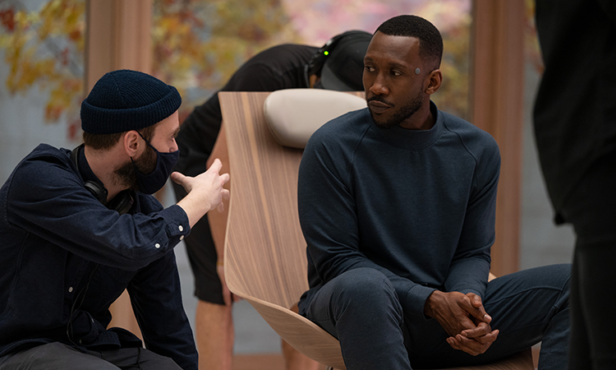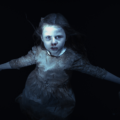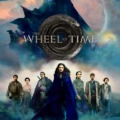What would you do if you were about to die and you could be replaced with an exact copy of yourself? The only issue is that you can’t tell your family you were even ill in the first place…
Set in the near future, that’s the question Cameron (Mahershala Ali) has to face in Swan Song. He has been diagnosed with a terminal illness, and to shield his family from grief, he has been presented with an alternative solution by his doctor (Glenn Close) in the form of ‘Jack’, Cam’s identical clone. As Cam grapples with whether or not to alter his family’s fate, he learns more about life and love than he ever imagined.
We spoke to the film’s writer and director Benjamin Cleary (pictured above with star Mahershala Ali) about his love of sci-fi, how he’s subverting tropes and why he hopes people will be discussing the film in the pub after they’ve watched it…
When did you first get the idea for Swan Song?
I started writing this five years ago, so it’s been quite a long journey. I first had the idea ten years ago, and I chucked it away in a drawer and then when I was trying to decide what to make after I made a short [movie], it bubbled up and I pitched it to my team. I pitched a number of things, but they all gravitated towards this.
It comes from quite a personal place, so I think I was a little bit scared to jump into writing something like this because it was going to shine a light on some losses that I’d had growing up and I had probably avoided delving into the effects some of those had on me, really.
What’s your process when writing a script?
When starting to write, I need to have an ending in mind. That’s the first thing. Every writer is different, but for me I need that anchor. I knew exploring goodbye was something I really wanted to explore. Because I think when you lose people without a goodbye, it’s a whole thing. So I kind of had the end and then it all started becoming about what the journey would be to get there.
What are the main themes of the movie?
I quite quickly realised this was going to be a very human story. It was going to be a love story. It was going to be about things like the moral dilemma, and that actually the science and the technology in it would have to take a backseat if I was going to tell it in this personal way.
You could take this exact same premise and do it in a way more sci-fi way, and I’d love that because I love sci fi! The Matrix and things like that growing up were some of my favourite films. But for me, I felt like if I was going to be able to tell this story, I’d have to try and keep it grounded and create a world where it felt relatable to our world today.
Something that felt like one click on. Where the tech was one click on. We know what Zoom is like, but [in this movie] the Zoom is a bit different with augmented reality. We know what getting a cab is like, but the cab is self-driving [in Swan Song]. I think you do need to create a certain minimum amount of world-building like that so that the audience can suspend their disbelief and really get on board with the premise. So it was a bit of a balancing act.
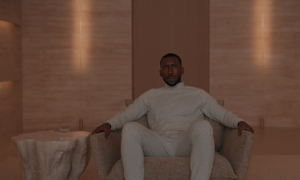
Though the film is set in the near future it isn’t a typical sci-fi movie. What genre would you put Swan Song under?
I think genre is really interesting because when dipping a toe into the sci-fi genre in this, it does allow you to take those genre conventions and (no spoilers or anything) kind of subvert them a little bit. Or know that audiences have expectations and see if you can get that into the fabric of the film. So I found that the sci-fi element to it was a really useful conflict and tension building tool that I could use.
Day one in screenwriting masterclasses or whatever is like ‘don’t do flashbacks’ but I think through this process, of someone having to try and decipher if their identical person is truly is them, the flashbacks became an integral part of the narrative. Actually, they earned their keep because there were these other layers that were happening. He is trying to decipher if Jack truly is him, while going through this self-examination about his life and where he currently is. So I felt like that was a really interesting part at the heart of this, that the sci-fi side of this story allowed us to do. The sci-fi elements allowed it to be human in a weird way.
The film deals with some heavy ideas such as grief and loss, what do you think it is about genre that makes it an effective platform to explore such themes?
It’s funny, isn’t it, because I think when you imagine a premise like this; the question that you hope it evokes is ‘what would you do if you were faced with something Cameron was facing?’, which is the unfortunate thing of being terminally ill, but he gets a chance to leave a perfect copy of himself behind. What you hope is that you create the film that makes us, all the way through, ask what would we do. The beauty of a sci-fi concept is it allows you to go to those ‘what-if’ places.
For me, I love it when a film forces me to think about it after it ends. Or have conversations in the pub with your loved ones. So I think sci-fi is just a really, really interesting place. In a sense, it’s science fiction, and it’s set in the future, but it’s really asking about the present day too. One of the things we really wanted to do with Swan Song was to try and not paint a dystopian world because I hope that that leaves more fertile ground for creating conversation rather than necessarily shutting them down.
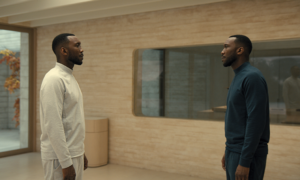
What do you want for audiences to take away from the film?
We’ve started showing the movie in screenings and myself, Mahershala [Ali], Glenn [Close] and Naomi [Harris who plays Cam’s wife, Poppy] have started doing Q&As with people who are coming up after and it’s made it all worthwhile.
I don’t want to well up now but people are coming up and they’re sharing these really personal stories of loss with us. It’s amazing because they’re talking about the deep loss they’ve had, but they’re also talking about the joy and the happiness and the love for those people. It’s so touching and it’s so wonderful. We’re also having these conversations about the ethics of it, the morals of it, would you do it? All these kinds of interesting things that hopefully the film brings up and that’s been the best thing.
I’ve been in this for five years. It’s been really tough. We shot it during COVID. There have been so many challenges, but showing the film to an audience and then having that response has been really beautiful. So, if there’s more of that and people are finding their own stuff in there that’s personal to them or they’re really thinking about it, what I would love people to take away is a conversation-starter. That would be lovely.
Swan Song will premiere in select UK cinemas nationwide and on Apple TV+ on 17 December 2021
